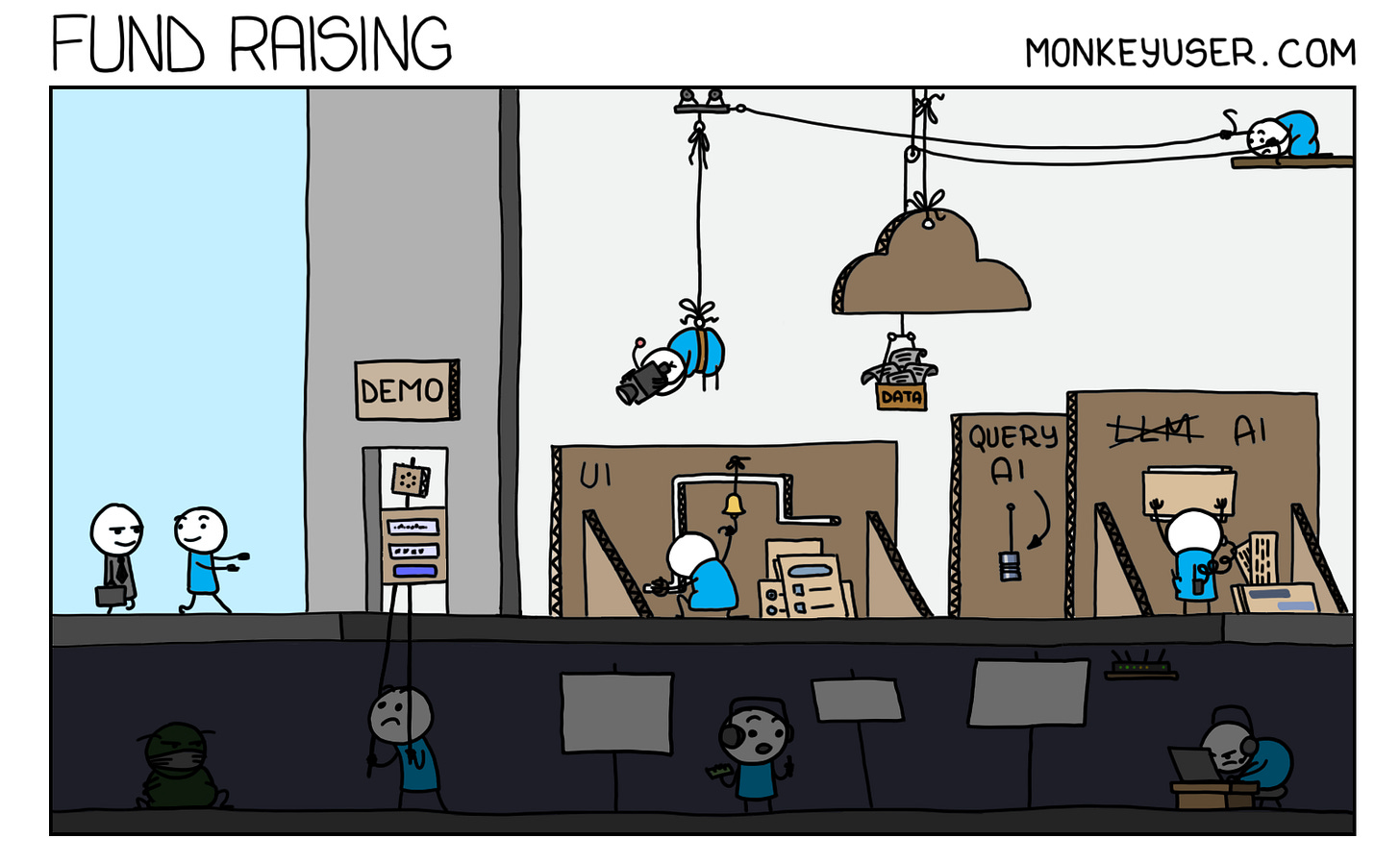AI Search : A Real Threat For Conventional Search?
November 4th | Superintelligence Newsletter
Hey Superintelligence Fam! 👋
In today's fast-paced digital landscape, artificial intelligence (AI) is revolutionizing how we access information. AI-powered search engines leverage advanced technologies like natural language processing and machine learning to understand user intent and context, delivering precise and personalized results. Unlike traditional search engines that rely heavily on keyword matching, AI search engines can better understand the context and intent behind search queries, furnishing more intelligent, intuitive, and conversational search experiences.
The rapid adoption of AI in search is evident. In the United States, online searches for terms related to "AI text generators" reached 44.64 thousand in January 2024, representing a growth of over 49% compared to the same month in the previous year.
This surge underscores a significant shift in user behavior, as more individuals turn to AI-driven tools for efficient information retrieval. As AI continues to evolve, its impact on conventional search methods becomes increasingly profound, prompting discussions about the future of information access and the potential challenges and opportunities that lie ahead.
Let’s see what all happened in the past week in intelligence.
Reading Time: 4 Minutes
Open Source Initiative Defines Open Source AI : OSI releases Open Source AI Definition 1.0, setting criteria for open-source AI systems. OSAID emphasizes unrestricted use, transparency, and redistribution. It requires disclosure of training data, code accessibility, and model parameters. Industry leaders support the initiative to foster AI innovation.
ChatGPT Launches Enhanced Web Search for Real-Time, Relevant Results
OpenAI introduces real-time web search for ChatGPT Plus and Team users. Feature offers current news, weather, and dynamic data access. Powered by upgraded GPT-4o model, it includes source citations and partnerships with news providers for accuracy.
Google CEO Sundar Pichai Reveals Over a Quarter of New Code at Google is AI-Generated
Google's AI generates 25% of new code, boosting productivity. Internal AI tool "Goose" assists developers. Company reports strong financials with AI driving growth. Google expands AI innovations across products while facing regulatory challenges.
Introspection in LLMs: LLMs can tap into hidden self-knowledge, revealing insights beyond their training data. While this introspective ability offers potential for better control and transparency, it's still limited, especially for complex, lengthy tasks.
Janus: A new multimodal framework that breaks down visual processing into distinct pathways and unifies them with a single transformer. Janus outshines previous models, balancing visual understanding and generation with impressive flexibility and performance.
Inference Scaling for Long-Context RAG: Discovering that RAG’s performance scales with expanded context, using clever computation allocation to achieve linear gains. A new model now guides optimal use of compute in long-context RAG.
SearchGPT: OpenAI's prototype AI search engine combining real-time web information with conversational AI. It provides quick, relevant answers with clear source attribution, aiming to enhance the search experience.
GitHub Spark: An AI-powered tool for creating micro apps ("sparks") using natural language. It offers a managed runtime environment, enabling users to build and share customized applications without coding.
Agentforce: Salesforce's AI-powered platform for building autonomous agents. It enables businesses to create, customize, and deploy AI agents for various functions like sales and customer service.
Adobe Project Concept: An AI-powered tool for creative brainstorming and mood-boarding. It allows quick generation, mixing, and remixing of art and images, facilitating collaborative ideation for designers
RAG Explained
Oftentimes, GAI and RAG discussions are interconnected. Learn more about about RAG is and how it works alongside your databases, LLMs and vector databases for better results with Luv Aggarwal and Shawn Brennan.
U.S. National Security AI Guidelines: President Biden introduced new AI usage guidelines for the Pentagon and intelligence agencies, emphasizing democratic values and human oversight.
Polish Radio Station Halts AI Presenters: OFF Radio Krakow ceased using AI-generated presenters after public backlash over job replacement concerns.
AI-Generated Misinformation Incident: An AI-generated article falsely advertised a Dublin Halloween parade, highlighting challenges in AI-driven content accuracy.
Aporia's 'Guardrails' for AI Chatbots: Startup Aporia launched 'Guardrails' to intercept and correct inaccurate or inappropriate AI chatbot responses, aiming to enhance trust in AI interactions.
Intelligence Humour
Thank you for tuning in to this week's edition of Superintelligence Newsletter! Stay connected for more groundbreaking insights and updates on the latest in AI and superintelligence.
For more in-depth articles and expert perspectives, visit our website | Have feedback? Provide feedback.
Stay curious, stay informed, and keep pushing the boundaries of what's possible!
Until Next Time!
Superintelligence Team.










